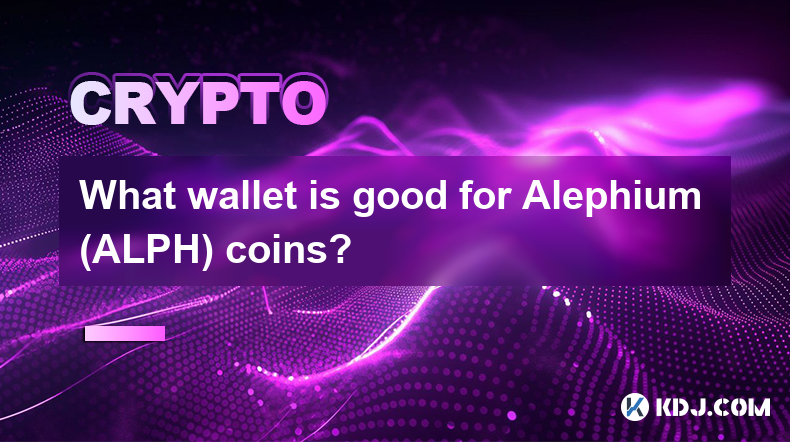-
 Bitcoin
Bitcoin $106,754.6083
1.33% -
 Ethereum
Ethereum $2,625.8249
3.80% -
 Tether USDt
Tether USDt $1.0001
-0.03% -
 XRP
XRP $2.1891
1.67% -
 BNB
BNB $654.5220
0.66% -
 Solana
Solana $156.9428
7.28% -
 USDC
USDC $0.9998
0.00% -
 Dogecoin
Dogecoin $0.1780
1.14% -
 TRON
TRON $0.2706
-0.16% -
 Cardano
Cardano $0.6470
2.77% -
 Hyperliquid
Hyperliquid $44.6467
10.24% -
 Sui
Sui $3.1128
3.86% -
 Bitcoin Cash
Bitcoin Cash $455.7646
3.00% -
 Chainlink
Chainlink $13.6858
4.08% -
 UNUS SED LEO
UNUS SED LEO $9.2682
0.21% -
 Avalanche
Avalanche $19.7433
3.79% -
 Stellar
Stellar $0.2616
1.64% -
 Toncoin
Toncoin $3.0222
2.19% -
 Shiba Inu
Shiba Inu $0.0...01220
1.49% -
 Hedera
Hedera $0.1580
2.75% -
 Litecoin
Litecoin $87.4964
2.29% -
 Polkadot
Polkadot $3.8958
3.05% -
 Ethena USDe
Ethena USDe $1.0000
-0.04% -
 Monero
Monero $317.2263
0.26% -
 Bitget Token
Bitget Token $4.5985
1.68% -
 Dai
Dai $0.9999
0.00% -
 Pepe
Pepe $0.0...01140
2.44% -
 Uniswap
Uniswap $7.6065
5.29% -
 Pi
Pi $0.6042
-2.00% -
 Aave
Aave $289.6343
6.02%
What wallet is good for Alephium (ALPH) coins?
When selecting the ideal Alephium (ALPH) wallet, carefully consider security, convenience, compatibility, reputation, and the nature of your cryptocurrency management needs.
Dec 24, 2024 at 04:58 am

Key Points:
- Essential Considerations for Choosing an Alephium (ALPH) Wallet
- Hardware Wallets: Enhanced Security for Long-Term Storage
- Software Wallets: Convenience and Accessibility for Frequent Transactions
- Web Wallets: Accessibility and User-Friendliness
- Exchange Wallets: Integrated Storage and Trading Capabilities
Detailed Guide:
Essential Considerations for Choosing an Alephium (ALPH) Wallet
Selecting the ideal Alephium (ALPH) wallet necessitates consideration of specific factors:
- Security: Determine the level of security required, whether for short-term transactions or long-term storage.
- Convenience: Evaluate the ease of use and accessibility of the wallet for regular transactions.
- Compatibility: Ensure the wallet supports Alephium (ALPH) and is compatible with the devices you will be using.
- Reputation: Research the reputation and reliability of the wallet provider to safeguard your assets.
Hardware Wallets: Enhanced Security for Long-Term Storage
Hardware wallets provide superior security for storing large amounts of Alephium (ALPH) coins, as they are kept offline and protected from cyberattacks.
- Ledger Nano X: A renowned hardware wallet with a secure chip, Bluetooth connectivity, and support for numerous cryptocurrencies including ALPH.
- Trezor Model T: Another reputable hardware wallet with a large touchscreen, passphrase encryption, and advanced security features.
Software Wallets: Convenience and Accessibility for Frequent Transactions
Software wallets offer convenience and accessibility for users who frequently transact Alephium (ALPH) coins.
- MetaMask: A versatile browser-based wallet compatible with various blockchains, including Alephium, providing easy token management and transaction initiation.
- Exodus: A user-friendly desktop wallet that supports multiple cryptocurrencies, including ALPH, and offers a clean interface and a user-friendly experience.
Web Wallets: Accessibility and User-Friendliness
Web wallets provide easy access and user-friendliness, allowing users to manage their Alephium (ALPH) coins online.
- Alephium Wallet: The official web wallet developed by the Alephium team, designed for secure and convenient storage of ALPH coins.
- Atomic Wallet: A comprehensive web wallet that supports multiple cryptocurrencies, including ALPH, and offers additional features such as trading, staking, and decentralized exchange.
Exchange Wallets: Integrated Storage and Trading Capabilities
Exchange wallets, offered by cryptocurrency exchanges, provide the convenience of integrated storage and trading capabilities.
- Binance: The largest cryptocurrency exchange globally, offering an exchange wallet to store and trade ALPH coins alongside other cryptocurrencies.
- KuCoin: A popular cryptocurrency exchange with a user-friendly exchange wallet that supports ALPH and a wide range of other digital assets.
FAQs:
Q: Why is it important to choose the right Alephium (ALPH) wallet?
A: Choosing the right wallet helps ensure the security and accessibility of your ALPH coins, catering to your specific storage and usage requirements.
Q: What are the key differences between hardware and software wallets?
A: Hardware wallets provide enhanced security by storing coins offline, while software wallets offer convenience for frequent transactions.
Q: Can I use any wallet to store Alephium (ALPH) coins?
A: No, only wallets that support Alephium (ALPH) are suitable for storing the coins.
Disclaimer:info@kdj.com
The information provided is not trading advice. kdj.com does not assume any responsibility for any investments made based on the information provided in this article. Cryptocurrencies are highly volatile and it is highly recommended that you invest with caution after thorough research!
If you believe that the content used on this website infringes your copyright, please contact us immediately (info@kdj.com) and we will delete it promptly.
- KuCoin Lists Namada (NAM) with Token Reward GemPool: A Deep Dive
- 2025-06-19 14:25:12
- Laser Drivers, Coin Cells, and Rangefinders: A New Era of Compact Power
- 2025-06-19 14:44:15
- Crypto Updates: FxWirePro's Key Insights into Tokenization and Regulation
- 2025-06-19 15:05:13
- Bitcoin Price: Uncertain Rise Amidst New Highs and Political Plays
- 2025-06-19 15:25:12
- Shiba Inu Price Prediction & Inflows: Whale Moves Signal Potential Shift?
- 2025-06-19 16:05:12
- Altcoin Season Delayed? Analysts Eye Rate Cuts for Crypto's Next Big Move
- 2025-06-19 16:05:12
Related knowledge

How to customize USDT TRC20 mining fees? Flexible adjustment tutorial
Jun 13,2025 at 01:42am
Understanding USDT TRC20 Mining FeesMining fees on the TRON (TRC20) network are essential for processing transactions. Unlike Bitcoin or Ethereum, where miners directly validate transactions, TRON uses a delegated proof-of-stake (DPoS) mechanism. However, users still need to pay bandwidth and energy fees, which are collectively referred to as 'mining fe...

USDT TRC20 transaction is stuck? Solution summary
Jun 14,2025 at 11:15pm
Understanding USDT TRC20 TransactionsWhen users mention that a USDT TRC20 transaction is stuck, they typically refer to a situation where the transfer of Tether (USDT) on the TRON blockchain has not been confirmed for an extended period. This issue may arise due to various reasons such as network congestion, insufficient transaction fees, or wallet-rela...

How to cancel USDT TRC20 unconfirmed transactions? Operation guide
Jun 13,2025 at 11:01pm
Understanding USDT TRC20 Unconfirmed TransactionsWhen dealing with USDT TRC20 transactions, it’s crucial to understand what an unconfirmed transaction means. An unconfirmed transaction is one that has been broadcasted to the blockchain network but hasn’t yet been included in a block. This typically occurs due to low transaction fees or network congestio...

What to do if USDT TRC20 transfers are congested? Speed up trading skills
Jun 13,2025 at 09:56am
Understanding USDT TRC20 Transfer CongestionWhen transferring USDT TRC20, users may occasionally experience delays or congestion. This typically occurs due to network overload on the TRON blockchain, which hosts the TRC20 version of Tether. Unlike the ERC20 variant (which runs on Ethereum), TRC20 transactions are generally faster and cheaper, but during...

The relationship between USDT TRC20 and TRON chain: technical background analysis
Jun 12,2025 at 01:28pm
What is USDT TRC20?USDT TRC20 refers to the Tether (USDT) token issued on the TRON blockchain using the TRC-20 standard. Unlike the more commonly known ERC-20 version of USDT (which runs on Ethereum), the TRC-20 variant leverages the TRON network's infrastructure for faster and cheaper transactions. The emergence of this version came as part of Tether’s...

How to monitor large USDT TRC20 transfers? Tracking tool recommendation
Jun 12,2025 at 06:49pm
Understanding USDT TRC20 TransfersTether (USDT) is one of the most widely used stablecoins in the cryptocurrency ecosystem. It exists on multiple blockchains, including TRON (TRC20). The TRC20 version of USDT operates on the TRON network and offers faster transaction speeds and lower fees compared to its ERC-20 counterpart on Ethereum. When discussing l...

How to customize USDT TRC20 mining fees? Flexible adjustment tutorial
Jun 13,2025 at 01:42am
Understanding USDT TRC20 Mining FeesMining fees on the TRON (TRC20) network are essential for processing transactions. Unlike Bitcoin or Ethereum, where miners directly validate transactions, TRON uses a delegated proof-of-stake (DPoS) mechanism. However, users still need to pay bandwidth and energy fees, which are collectively referred to as 'mining fe...

USDT TRC20 transaction is stuck? Solution summary
Jun 14,2025 at 11:15pm
Understanding USDT TRC20 TransactionsWhen users mention that a USDT TRC20 transaction is stuck, they typically refer to a situation where the transfer of Tether (USDT) on the TRON blockchain has not been confirmed for an extended period. This issue may arise due to various reasons such as network congestion, insufficient transaction fees, or wallet-rela...

How to cancel USDT TRC20 unconfirmed transactions? Operation guide
Jun 13,2025 at 11:01pm
Understanding USDT TRC20 Unconfirmed TransactionsWhen dealing with USDT TRC20 transactions, it’s crucial to understand what an unconfirmed transaction means. An unconfirmed transaction is one that has been broadcasted to the blockchain network but hasn’t yet been included in a block. This typically occurs due to low transaction fees or network congestio...

What to do if USDT TRC20 transfers are congested? Speed up trading skills
Jun 13,2025 at 09:56am
Understanding USDT TRC20 Transfer CongestionWhen transferring USDT TRC20, users may occasionally experience delays or congestion. This typically occurs due to network overload on the TRON blockchain, which hosts the TRC20 version of Tether. Unlike the ERC20 variant (which runs on Ethereum), TRC20 transactions are generally faster and cheaper, but during...

The relationship between USDT TRC20 and TRON chain: technical background analysis
Jun 12,2025 at 01:28pm
What is USDT TRC20?USDT TRC20 refers to the Tether (USDT) token issued on the TRON blockchain using the TRC-20 standard. Unlike the more commonly known ERC-20 version of USDT (which runs on Ethereum), the TRC-20 variant leverages the TRON network's infrastructure for faster and cheaper transactions. The emergence of this version came as part of Tether’s...

How to monitor large USDT TRC20 transfers? Tracking tool recommendation
Jun 12,2025 at 06:49pm
Understanding USDT TRC20 TransfersTether (USDT) is one of the most widely used stablecoins in the cryptocurrency ecosystem. It exists on multiple blockchains, including TRON (TRC20). The TRC20 version of USDT operates on the TRON network and offers faster transaction speeds and lower fees compared to its ERC-20 counterpart on Ethereum. When discussing l...
See all articles

























































































